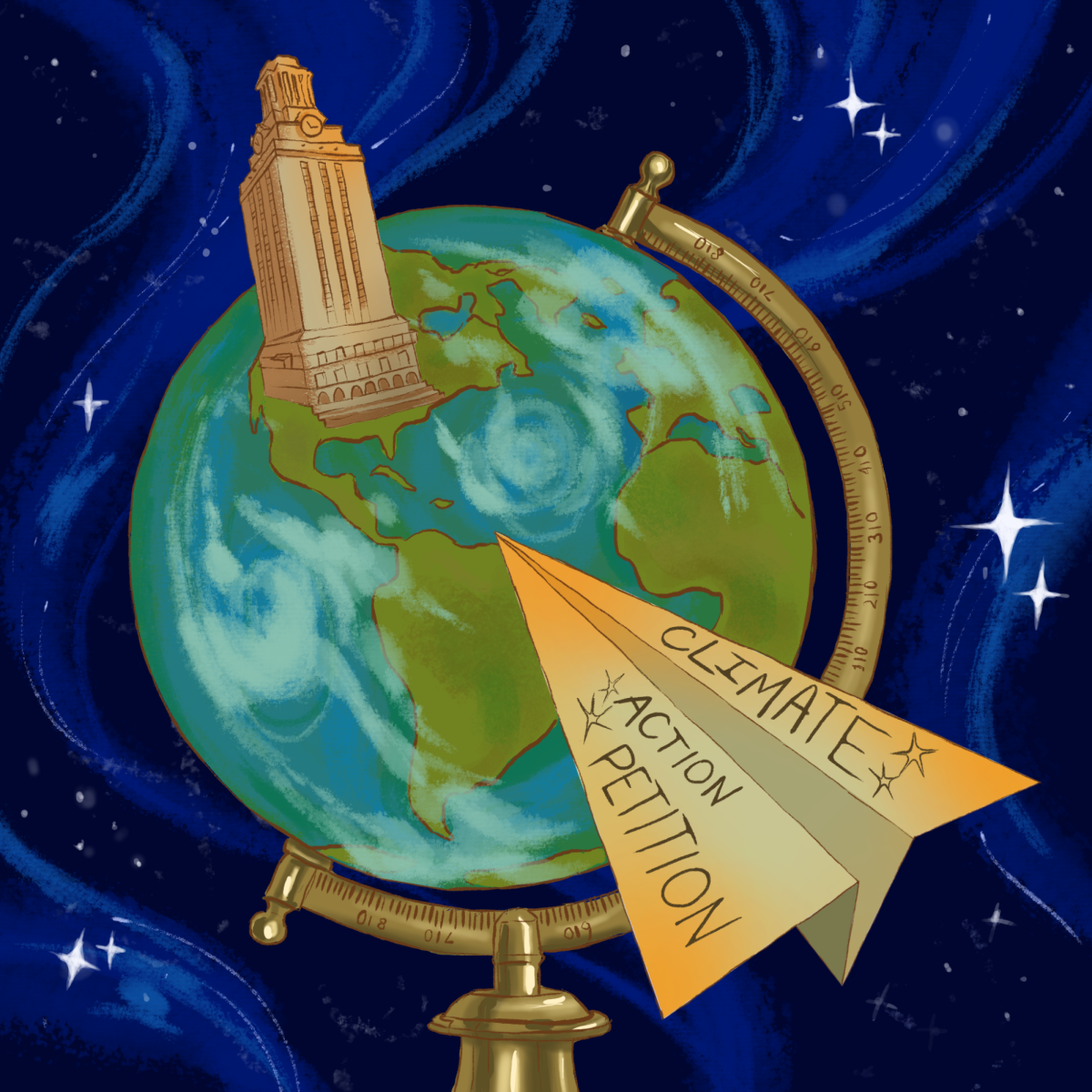Students Fighting Climate Change, a student organization seeking to hold UT accountable for its role in the climate crisis, sent a letter on Feb. 13 to former President Jay Hartzell requesting he acknowledge the University’s “role in climate change,” divest from fossil fuels and meet with the organization.
According to international financial website Investopedia, UT Systems had the second biggest university endowment in the world for the 2023 fiscal year. UT Systems’ endowments include the Permanent University Fund, which includes 2.1 million acres of land in Texas, 1.3 million of which is leased for the extraction of oil and gas. These 1.3 million acres contain 10,000 producing oil wells, according to the University Lands website. The fund also invests in fossil fuel companies including ConocoPhillips Company, ChevronTexaco Corporation, Valero Energy Corporation and others, according to a 2023 report.
The UT System Board of Regents aims to maximize revenue on the land and apply “environmental programs, which … promote awareness and sensitivity for the environment,” according to the website. University Lands operates nine total solar and wind-based renewable energy projects in Texas according to the website.
The SFCC advocates for a climate action plan outlined in a petition launched last April that currently has more than 570 signatures. The petition urges UT to reinvest its funds from fossil fuels to renewable energy technology and achieve carbon neutrality on campus by 2040. University spokesperson Mike Rosen said in an email that Permanent University Fund investment decisions are made at the UT System level by the University of Texas/Texas A&M Investment Management Company.
Although interim president Jim Davis replaced Hartzell on Feb. 19, SFCC research director Madeleine Lee said the group still hopes to meet with Hartzell to gain insight on how to continue its climate advocacy under the new administration.
Lee said the organization has not yet received a response from Hartzell as of Thursday. The organization attempted to meet with Hartzell in 2021, though the scheduled discussion was removed from the student advisory meeting agenda with less than 48 hours notice. The Texan previously reported that the University never provided reasoning to the SFCC for the meeting’s cancellation.
Lee, an electrical and computer engineering junior, said a carbon neutrality plan is a very reasonable expectation. The city of Austin aims to achieve carbon neutrality by 2040, but UT has not made the same commitment.
“If we’re going to be a leader in sustainability, then it makes sense that we should have some kind of net-zero plan,” Lee said. “(If not), what is that saying about what we expect from our country, from ourselves?”
UT has the potential to be a forward-looking university by embracing sustainable energy, Lee said.
“There’s definitely the resources, ability, the knowledge, the innovation at UT for these things to happen,” Lee said. “It’s just a question of, do we care enough? Do we have the willpower?”














